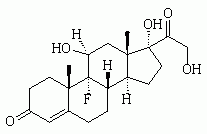Letters to the Editor are welcome and encouraged. Letters must address topics that have previously appeared in Critical Care Nurse. Keep your letters concise. Letters are subject to editing. Include your name, credentials, title (optional), city and state, and e-mail (for verification, not publication). Send to Letters to the Editor, Critical Care Nurse, 101 Columbia, Aliso Viejo, CA 92656; fax to (949) 362-2049, or send by e-mail to ccn@aacn.org.
Regarding the supplement "Severe Sepsis Management: Are We Doing Enough" (October 2003:suppl), on page 9 the authors state that "preliminary data show that low-dose steroid replacement may reduce mortality in patients with severe sepsis who have relative adrenal insufficiency." A recent trial has clearly shown a mortality reduction with the use of low-dose steroids in adrenally insufficient patients with severe sepsis and should not be viewed as preliminary or experimental therapy. (1) The use of steroid therapy is currently advocated for use in all patients with severe sepsis and has a clearly established role. (2) As low-dose steroid therapy in severe sepsis is inexpensive, easy to administer, and was shown to have a safe side effect profile, its role is important as part of the sepsis treatment cocktail including tight glycemic control and activated protein C.
References
1. Annane D, Sebille V, Charpentier C, et al. Effect of treatment with low doses of hydrocrotisone and fludrocortisone on mortality in patients with septic shock. JAMA. 2002;288:862-871.
2. Vincent JL, Abraham E, Annane D, Bernard G, Rivers E, Van den Berghe G. Reducing mortality in sepsis: new directions. Crit Care. 2002;69(suppl 3):S1-S18.
Doson Chua, PharmD
Abbotsford, British Columbia
COPYRIGHT 2004 American Association of Critical-Care Nurses
COPYRIGHT 2004 Gale Group



